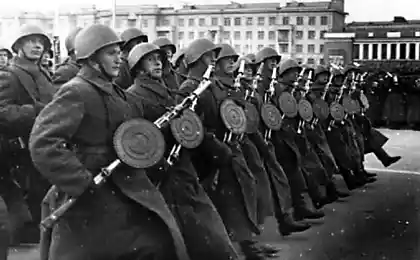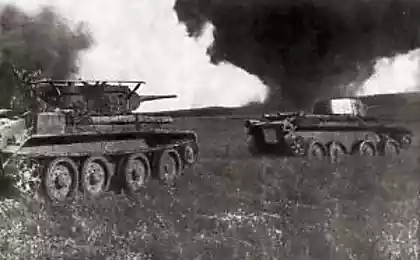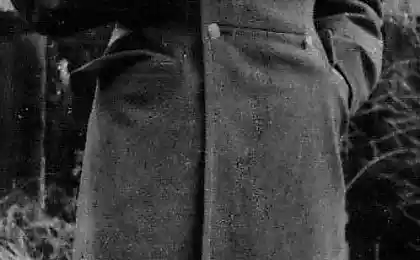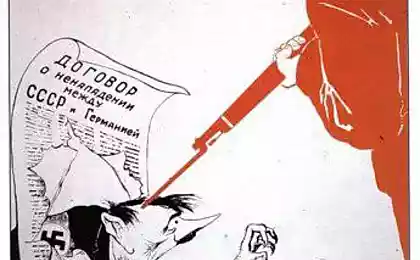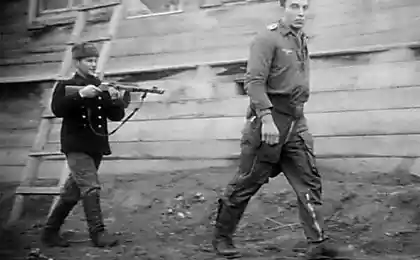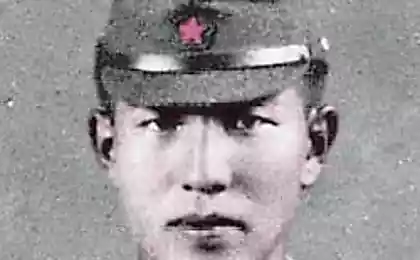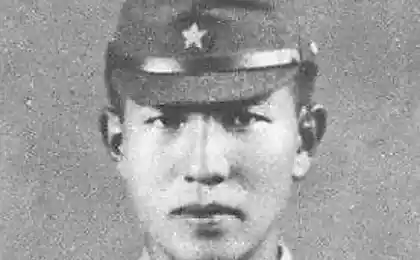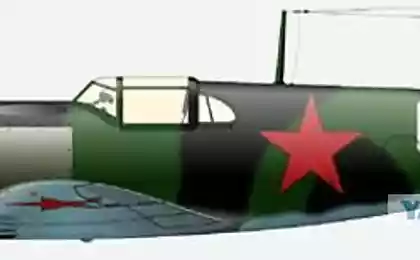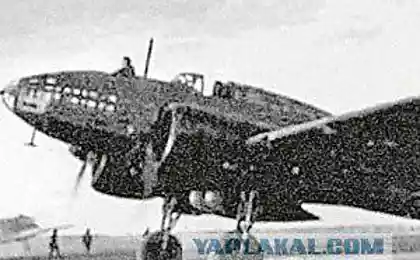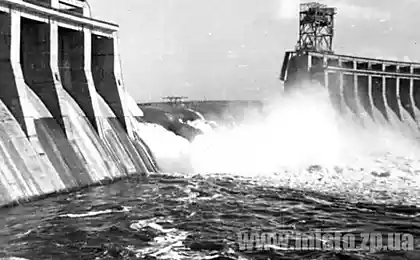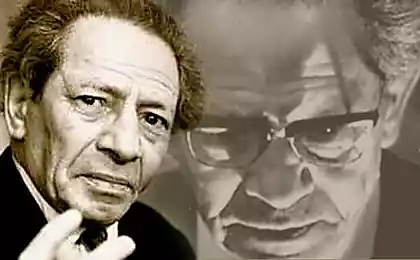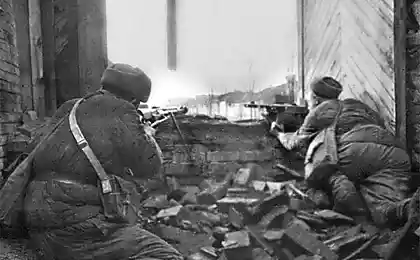675
Order number 227
Order "Not one step back!" Was the sobering slap in the face that gave the Red Army from the knockdown, received the summer of 1942.
July 28, 1942 order was issued the People's Commissar of Defence of the USSR number 227, went down in history as the order "Not a step back!».
Many historians cite this document as an example as clear evidence of vampirism Stalinist regime, its contempt for the lives of its own citizens.
Tezisno this point of view can be summarized as follows: the Soviet command, because of their lack of talent unable to resist the Wehrmacht generals, turned the Red Army soldiers to suicide bombers who were forced to fight put behind them the machine guns detachments. The Germans were not defeated, but literally piled with corpses "penalty box", which drove in the enemy positions almost unarmed.
The negative attitude to the order number 227 from the inhabitants, draws historical knowledge of journalism, it is often due to the fact that they are simply not familiar with the text of the document.
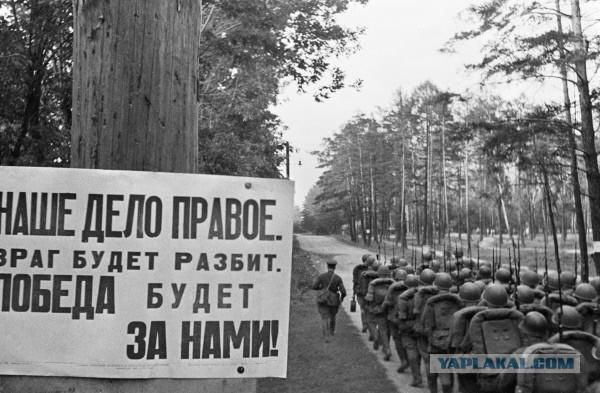
On the brink of disaster.
Spring and summer of 1942 the Soviet Union turned out to be perhaps even more disastrous than the first weeks of the war.
The attack on Kharkov not only failed, but turned into a complete rout of the Soviet troops. Killed, wounded and captured Red Army lost about 500 000 people. The Nazis managed to capture the Crimea, in the beginning of July 1942 fell Sevastopol.
The German troops rushed to the Volga, capturing more and more territory. July 7 the Nazis broke into Voronezh on July 23 fell Rostov-on-Don.
The retreat of the Red Army, it seemed, took irreversible. After leaving the shores of the Volga River and the capture of Stalingrad Soviet Union deprived of strategic resources and communications. Worse, to break into the Caucasus enemy could seize oilfields of Grozny and Baku.
In the UK, not relying on the resistance of Soviet troops, already considered the possibility of applying the massive bombing of the Soviet oil fields, that they have not got to the Nazis. About allied commitments in London did not much care - in fact an ally is about to be defeated.
Furthermore, the decisive success of the Nazis on the Volga and in the Caucasus, was fraught with the entry into the war against the Soviet Union in Japan and Turkey, making a very difficult situation in an absolutely catastrophic.
In these circumstances, to reverse the situation could only cardinal measures. One of these measures became the order № 227.
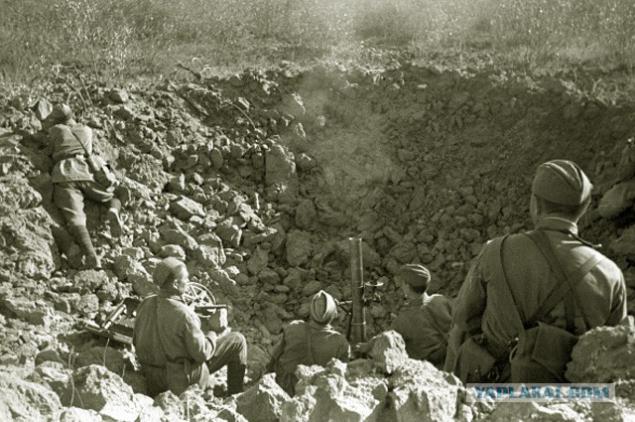
The bitter truth.
Unlike the famous Stalin's speech at the parade in Moscow in November 1941, the text of the order is very hard, even ruthless character. Instead of high pathetic words - terrible in its frankness statement of facts "are fighting in the Voronezh area, on the Don, in the south of the gates of the North Caucasus. The German invaders penetrate toward Stalingrad, to Volga and want at any cost to capture Kuban and the North Caucasus with their oil and grain. The enemy has captured Vorochilovgrad, Starobelsk, Rossosh, Kupyansk, Valuiki, Novocherkassk, Rostov-on-Don, Voronezh half.
Some of the troops of the Southern front, following the panic-mongers, have left Rostov and Novocherkassk without serious resistance and without orders from Moscow, covering their banners with shame. The population of our country, with love and respect related to the Red Army starts disappointed in it, lose faith in the Red Army, and many of them curse the Red Army for what it gives our people under the yoke of the German oppressors, and itself falls away to the east " .
No less deafening sound and word on casualties: "The territory of the Soviet Union - it is not a desert, but people - workers, peasants, intellectuals, our fathers and mothers, wives, brothers, children. The territory of the USSR, which has captured and aims to capture the enemy - is the bread and other products for the army and the rear, metal and fuel for industry, factories, plants supplying the army with arms and ammunition, railroads. After the loss of Ukraine, Belarus, the Baltic States, the Donets Basin and other areas have become smaller area, therefore, it has become much less people, bread, metal, plants, factories. We have lost more than 70 million inhabitants, more than 80 million tons of grain a year, and more than 10 million tons of steel a year. We do not have predominance over the Germans in human resources or in the stocks of grain. To retreat further - means to waste ourselves and to waste at the same time our country. Each new piece of territory will be left us in every way and in every possible way to strengthen the enemy to weaken our defenses, our Motherland. "
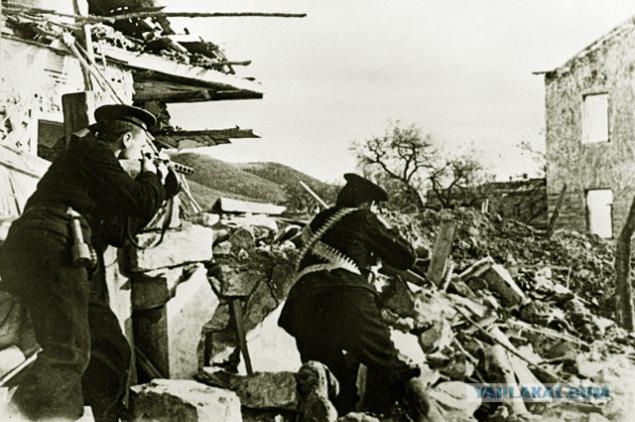
Right to maneuver or the right to cowardice?
What are the measures in such a difficult situation offered the Soviet high command?
There are three myths about the order № 227. The first - he allegedly forbade Soviet officers and soldiers to retreat, condemning them to death. Second - those who still decided to retreat, overtook bullets fighters created specifically for this detachments. The third - the main force of the Red Army began to specially created from unjustly convicted war criminals and the penal companies and battalions, which were thrown into battle as a suicide.
Let us examine these myths about the points. Point one - the order number 227 is not prohibited as such derogation. According to its text, "from now on the iron law of discipline for each commander, Red Army soldier, and commissar should be the requirement - not a step back without order from higher command." Entering the Order of liability also applies only to those that left the position voluntarily.
Critics insist the order - he allegedly restricted the initiative of commanders on the ground, depriving them of the possibility of maneuver. To a certain extent this is true. But it is worth remembering that the commander of middle managers can not see the whole picture. The retreat, which is a boon to the battalion or regiment, from the point of view of the general situation of division, the army, the front can be irreparable harm. Some enterprising commanders too, too came to love retreat, and eventually turned it into a real collapse of the front, to stop that and it took extraordinary measures.
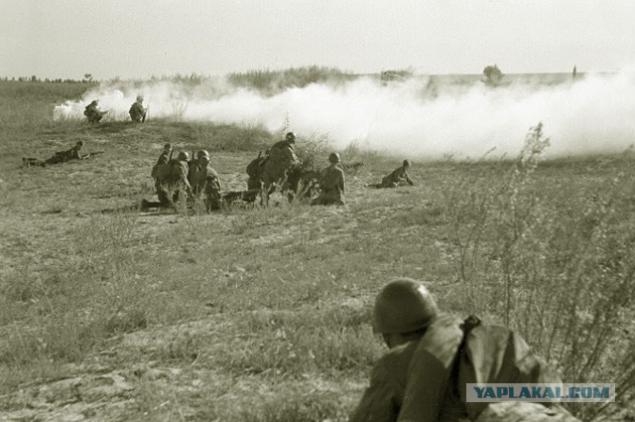
How many people were shot detachments?
The second point - started from the most conscious and morally sustainable soldiers to prevent panic retreat detachments really got the authority to shoot cowards and panic-mongers at the site.
However, the picture that on the one hand to the Soviet soldiers shoot Germans, on the other hand - guns detachments - the fruit of a sick imagination all sorts of writers and directors.
Here, for clarity, a summary of the NKVD on the activities of defensive squads of the Don Front from August 1 to October 1, 1942. Total for this period detachments were detained 36,109 soldiers and officers who escaped from the front. Of those returned to their units and transit point 32,993 man sent to the penal company - 1056 people sent to penal battalions - 33 people arrested - 736 people were shot - 433 people.
Thus, in spite of the severe time and the difficult situation at the front, under the supreme measure fell slightly more than 1 percent of those who had been detained by detachments. The vast majority of right, without further proceedings, goes back to a position to fight the enemy.
According to the veterans, with fighters detachments they almost never met, because their positions were well away from the front line. The main task detachments was to revive faltering, most of whom fled, yielding even personal cowardice, but the general impulse.
In addition to stopping the running parts detachments engaged in the protection of the home front, eliminating the saboteurs. In addition, were frequent occasions when detachments took the blows of Hitler's parts have broken, stopping the enemy offensive.
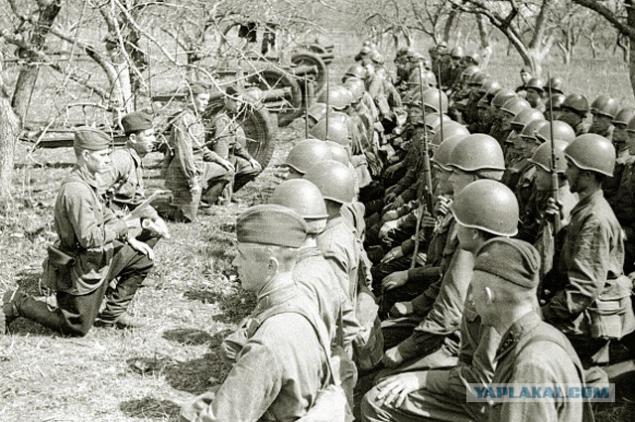
As Comrade Stalin adopted best practices.
The third point - is to start with the fact that the use of penal units in any way is not the know-how of Comrade Stalin. In the order number 227 of penal administration companies and battalions justified by the positive experience of the Germans: "After their winter retreat under pressure of the Red Army, when in German troops discipline became loose, the Germans for recovery of discipline imposed severe measures which have led to good results. They formed 100 penal companies from soldiers, guilty of breaches of discipline due to cowardice or instability, put them at dangerous sections of the front and commanded them to redeem their sins by blood. They formed then about ten penal battalions from commanders guilty of breaches of discipline due to cowardice or instability, deprived them of their decorations and put them at even more dangerous sections of the front and commanded them to redeem their sins ... As we know, these measures have had their effect, and now German troops fight better than they fought in the winter ».
Snipers of the Soviet army sitting in an ambush in the Murmansk region. May 1, 1943
This penalty is applied in various units of the armies of the world much earlier. Thus, such a measure - is nothing more than an appeal to the harsh but effective measures previously successfully applied other.
Order number 227 provides for the formation within the front from 1 to 3 penal battalions of up to 800 people within the army and between 5 and 10 penalty mouth numbering 150-200 people. In the penal company sent privates and junior officers in the penal battalions - Middle and senior commanders guilty of breaches of discipline due to cowardice and instability, "to give them an opportunity to redeem by blood their crimes against the Motherland».
Indeed, this type of unit used on the most dangerous sections of the front, which explains the fact that the losses in the penal battalion and penal battalions were higher than in linear units, about 3-6 times. Nevertheless, neither of which "cannon fodder" it was not. The term of penalty units could not exceed three months and declined for those who displayed personal courage and was marked by the command or wounded in combat. Moreover, it was frequent cases when a soldier from the penal company was returning to his unit not only with the redemption of guilt, but also from the martial medal on his chest.
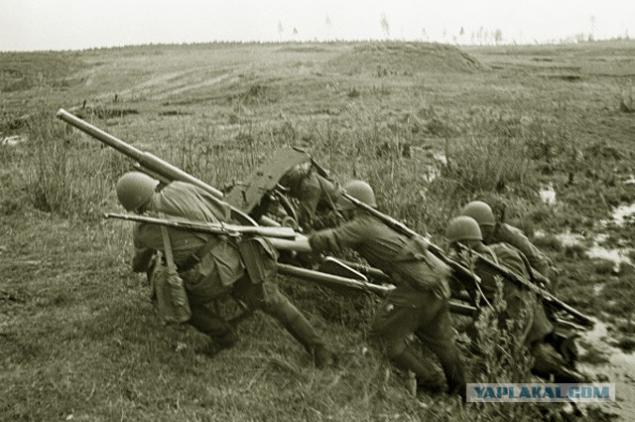
July 28, 1942 order was issued the People's Commissar of Defence of the USSR number 227, went down in history as the order "Not a step back!».
Many historians cite this document as an example as clear evidence of vampirism Stalinist regime, its contempt for the lives of its own citizens.
Tezisno this point of view can be summarized as follows: the Soviet command, because of their lack of talent unable to resist the Wehrmacht generals, turned the Red Army soldiers to suicide bombers who were forced to fight put behind them the machine guns detachments. The Germans were not defeated, but literally piled with corpses "penalty box", which drove in the enemy positions almost unarmed.
The negative attitude to the order number 227 from the inhabitants, draws historical knowledge of journalism, it is often due to the fact that they are simply not familiar with the text of the document.

On the brink of disaster.
Spring and summer of 1942 the Soviet Union turned out to be perhaps even more disastrous than the first weeks of the war.
The attack on Kharkov not only failed, but turned into a complete rout of the Soviet troops. Killed, wounded and captured Red Army lost about 500 000 people. The Nazis managed to capture the Crimea, in the beginning of July 1942 fell Sevastopol.
The German troops rushed to the Volga, capturing more and more territory. July 7 the Nazis broke into Voronezh on July 23 fell Rostov-on-Don.
The retreat of the Red Army, it seemed, took irreversible. After leaving the shores of the Volga River and the capture of Stalingrad Soviet Union deprived of strategic resources and communications. Worse, to break into the Caucasus enemy could seize oilfields of Grozny and Baku.
In the UK, not relying on the resistance of Soviet troops, already considered the possibility of applying the massive bombing of the Soviet oil fields, that they have not got to the Nazis. About allied commitments in London did not much care - in fact an ally is about to be defeated.
Furthermore, the decisive success of the Nazis on the Volga and in the Caucasus, was fraught with the entry into the war against the Soviet Union in Japan and Turkey, making a very difficult situation in an absolutely catastrophic.
In these circumstances, to reverse the situation could only cardinal measures. One of these measures became the order № 227.

The bitter truth.
Unlike the famous Stalin's speech at the parade in Moscow in November 1941, the text of the order is very hard, even ruthless character. Instead of high pathetic words - terrible in its frankness statement of facts "are fighting in the Voronezh area, on the Don, in the south of the gates of the North Caucasus. The German invaders penetrate toward Stalingrad, to Volga and want at any cost to capture Kuban and the North Caucasus with their oil and grain. The enemy has captured Vorochilovgrad, Starobelsk, Rossosh, Kupyansk, Valuiki, Novocherkassk, Rostov-on-Don, Voronezh half.
Some of the troops of the Southern front, following the panic-mongers, have left Rostov and Novocherkassk without serious resistance and without orders from Moscow, covering their banners with shame. The population of our country, with love and respect related to the Red Army starts disappointed in it, lose faith in the Red Army, and many of them curse the Red Army for what it gives our people under the yoke of the German oppressors, and itself falls away to the east " .
No less deafening sound and word on casualties: "The territory of the Soviet Union - it is not a desert, but people - workers, peasants, intellectuals, our fathers and mothers, wives, brothers, children. The territory of the USSR, which has captured and aims to capture the enemy - is the bread and other products for the army and the rear, metal and fuel for industry, factories, plants supplying the army with arms and ammunition, railroads. After the loss of Ukraine, Belarus, the Baltic States, the Donets Basin and other areas have become smaller area, therefore, it has become much less people, bread, metal, plants, factories. We have lost more than 70 million inhabitants, more than 80 million tons of grain a year, and more than 10 million tons of steel a year. We do not have predominance over the Germans in human resources or in the stocks of grain. To retreat further - means to waste ourselves and to waste at the same time our country. Each new piece of territory will be left us in every way and in every possible way to strengthen the enemy to weaken our defenses, our Motherland. "

Right to maneuver or the right to cowardice?
What are the measures in such a difficult situation offered the Soviet high command?
There are three myths about the order № 227. The first - he allegedly forbade Soviet officers and soldiers to retreat, condemning them to death. Second - those who still decided to retreat, overtook bullets fighters created specifically for this detachments. The third - the main force of the Red Army began to specially created from unjustly convicted war criminals and the penal companies and battalions, which were thrown into battle as a suicide.
Let us examine these myths about the points. Point one - the order number 227 is not prohibited as such derogation. According to its text, "from now on the iron law of discipline for each commander, Red Army soldier, and commissar should be the requirement - not a step back without order from higher command." Entering the Order of liability also applies only to those that left the position voluntarily.
Critics insist the order - he allegedly restricted the initiative of commanders on the ground, depriving them of the possibility of maneuver. To a certain extent this is true. But it is worth remembering that the commander of middle managers can not see the whole picture. The retreat, which is a boon to the battalion or regiment, from the point of view of the general situation of division, the army, the front can be irreparable harm. Some enterprising commanders too, too came to love retreat, and eventually turned it into a real collapse of the front, to stop that and it took extraordinary measures.

How many people were shot detachments?
The second point - started from the most conscious and morally sustainable soldiers to prevent panic retreat detachments really got the authority to shoot cowards and panic-mongers at the site.
However, the picture that on the one hand to the Soviet soldiers shoot Germans, on the other hand - guns detachments - the fruit of a sick imagination all sorts of writers and directors.
Here, for clarity, a summary of the NKVD on the activities of defensive squads of the Don Front from August 1 to October 1, 1942. Total for this period detachments were detained 36,109 soldiers and officers who escaped from the front. Of those returned to their units and transit point 32,993 man sent to the penal company - 1056 people sent to penal battalions - 33 people arrested - 736 people were shot - 433 people.
Thus, in spite of the severe time and the difficult situation at the front, under the supreme measure fell slightly more than 1 percent of those who had been detained by detachments. The vast majority of right, without further proceedings, goes back to a position to fight the enemy.
According to the veterans, with fighters detachments they almost never met, because their positions were well away from the front line. The main task detachments was to revive faltering, most of whom fled, yielding even personal cowardice, but the general impulse.
In addition to stopping the running parts detachments engaged in the protection of the home front, eliminating the saboteurs. In addition, were frequent occasions when detachments took the blows of Hitler's parts have broken, stopping the enemy offensive.

As Comrade Stalin adopted best practices.
The third point - is to start with the fact that the use of penal units in any way is not the know-how of Comrade Stalin. In the order number 227 of penal administration companies and battalions justified by the positive experience of the Germans: "After their winter retreat under pressure of the Red Army, when in German troops discipline became loose, the Germans for recovery of discipline imposed severe measures which have led to good results. They formed 100 penal companies from soldiers, guilty of breaches of discipline due to cowardice or instability, put them at dangerous sections of the front and commanded them to redeem their sins by blood. They formed then about ten penal battalions from commanders guilty of breaches of discipline due to cowardice or instability, deprived them of their decorations and put them at even more dangerous sections of the front and commanded them to redeem their sins ... As we know, these measures have had their effect, and now German troops fight better than they fought in the winter ».
Snipers of the Soviet army sitting in an ambush in the Murmansk region. May 1, 1943
This penalty is applied in various units of the armies of the world much earlier. Thus, such a measure - is nothing more than an appeal to the harsh but effective measures previously successfully applied other.
Order number 227 provides for the formation within the front from 1 to 3 penal battalions of up to 800 people within the army and between 5 and 10 penalty mouth numbering 150-200 people. In the penal company sent privates and junior officers in the penal battalions - Middle and senior commanders guilty of breaches of discipline due to cowardice and instability, "to give them an opportunity to redeem by blood their crimes against the Motherland».
Indeed, this type of unit used on the most dangerous sections of the front, which explains the fact that the losses in the penal battalion and penal battalions were higher than in linear units, about 3-6 times. Nevertheless, neither of which "cannon fodder" it was not. The term of penalty units could not exceed three months and declined for those who displayed personal courage and was marked by the command or wounded in combat. Moreover, it was frequent cases when a soldier from the penal company was returning to his unit not only with the redemption of guilt, but also from the martial medal on his chest.

